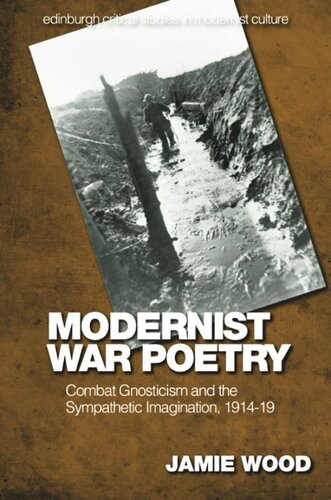

Most ebook files are in PDF format, so you can easily read them using various software such as Foxit Reader or directly on the Google Chrome browser.
Some ebook files are released by publishers in other formats such as .awz, .mobi, .epub, .fb2, etc. You may need to install specific software to read these formats on mobile/PC, such as Calibre.
Please read the tutorial at this link: https://ebookbell.com/faq
We offer FREE conversion to the popular formats you request; however, this may take some time. Therefore, right after payment, please email us, and we will try to provide the service as quickly as possible.
For some exceptional file formats or broken links (if any), please refrain from opening any disputes. Instead, email us first, and we will try to assist within a maximum of 6 hours.
EbookBell Team

4.8
94 reviewsThis study examines the work of the principle architects of Anglo-American modernist poetics – T.S. Eliot, H.D., Ezra Pound, Gertrude Stein, Edward Thomas and Wallace Stevens – and their response to the challenge of combatant war poetries. It argues that these civilian poets sought to negotiate directly with the combatant’s gnosticism, specifically with the combatant’s assertion that only those present at a catastrophe could properly represent its horrors. The modernists rightly identified that gnosticism was a threat to their own representational claims on an increasingly traumatic modernity. How was the imagination to be salvaged in order that it could still feel into the wounded experience of others? In response to this challenge, the modernists drafted their own imagined war poems, developing in the process several different and contradictory poetic systems. Whereas scholarship ordinarily tells the story of intra-war modern poetry as a series of different schools – the trench lyric, the home front elegy and the modernist long poem – each moving in a different direction, this study brings those traditions back together into one history by treating them as idiosyncratic responses to the same aesthetic problem.